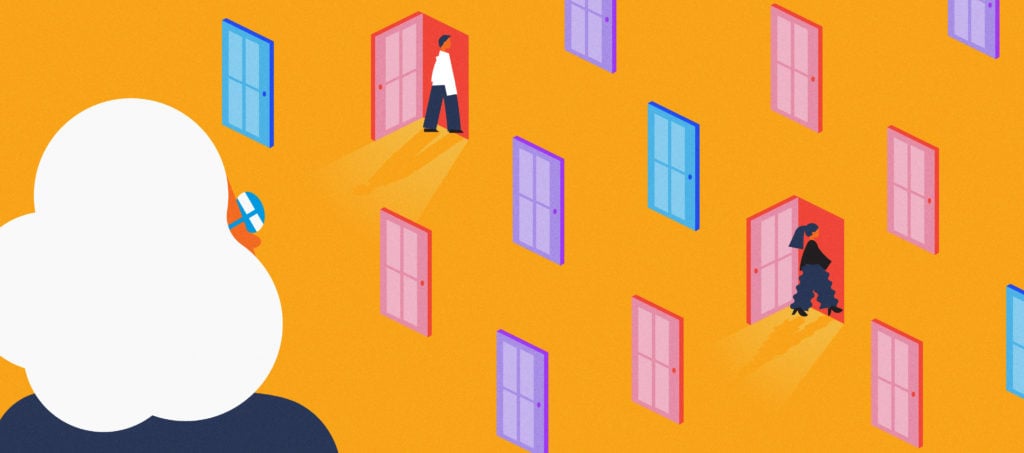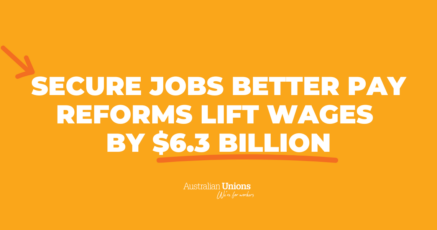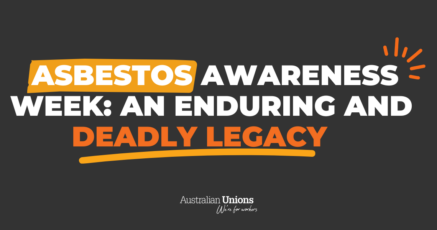
Age discrimination is illegal, but it still happens.
We all have different skills and expertise to offer. A good employer values diversity in their workforce and works hard to nurture it. But that’s not always the case. Age discrimination, also known as ‘ageism’ is still frustratingly common. Whether you’re a younger or older worker, there are many stereotypes in the workplace that are unfair and unjust.
If you’re over 50, you’re probably not alone in feeling like you’re treated unfairly because of your age. One common stereotype suggests that the older you are, the more set in your ways you become and the harder you are to train. Another suggests that because you were born before smartphones, you’re less able to adjust to new technologies. Or, you might just not have the same interests or life goals as your younger colleagues.
Take Kelli (not her real name) as an example. Kelli is 62 and works in the healthcare industry. She’s been in her current role for eight years. Kelli applied for a transfer from a medical practice in the city to one a little closer to home.
“It was the same role, same company, the same uniform even. It was actually fewer hours and a lighter workload than my current job,” Kelli tells us. But she still didn’t get the job.
She applied for the role and was interviewed, but Kelli says, “the hiring manager just said I wasn’t the right fit for the team.” Kelli met the team during her interview and noticed they were quite a bit younger than she was. The company eventually hired someone much younger and with much less experience.
Whether you can prove age discrimination or not, this kind of experience is incredibly common and can impact your work and mental health.
“I get really anxious about it now,” Kelli says. “I can’t even get a job that I already do every day. A job I’m already qualified for, for no other reason than I’m ‘not the right fit’ … I’m not sure I’ll be able to get any job if I lose this one. I feel a bit trapped and like I have to work twice as hard to prove I’m still valuable despite my age.”
HR is there to protect the company, not workers.
Age discrimination can be particularly harmful because it can be difficult to prove. Human resource departments generally know the law, so they will rarely let slip that your age got in the way of you getting a job. For example, you may be ‘overqualified,’ they may be looking for someone ‘more junior,’ someone who can ‘grow into the role’ or, like Kelli, you just may not be the ‘right fit.’
A 2018 survey by the Australian Human Rights Commission, in partnership with the Australian Human Resources Institute, found that 30% of human resources professionals surveyed indicated their organisation is reluctant to recruit workers above a certain age. And 68% of those respondents indicated an unwillingness to hire workers over the age of 50.
The law and your union are on your side.
Although it may seem common, age discrimination in Australian workplaces is absolutely illegal.
The Age Discrimination Act of 2004 makes it unlawful to discriminate based on age when advertising jobs, during the recruitment process, and when making decisions about training, promotions, and redundancies.
All types of employers and employment relationships are covered under the Age Discrimination Act, including full-time, part-time and casual employees, contract workers and commission agents, as well as apprentices, trainees, and those on probation.
Examples of age discrimination could include:
- Not employing someone who won’t ‘fit in’ because of their age
- Not employing younger people because they might move to another job too quickly
- Advertising a position for someone ‘under 30’ to join a ‘dynamic and agile young team’
- Forcing someone to retire or take a redundancy because of their age, or
- Bullying or harassing someone because of their age.
If you’ve been discriminated against because of your age, your union can and will help.
First things first, if you feel like you’ve been discriminated against because of your age – or for any other reason – it’s important you contact your union. Unions are here to help. Where you live and what kind of discrimination you are experiencing will determine who is best suited to help you. But we’ll sort that out together.
If discrimination cannot be resolved at the workplace level, you may be able to file a complaint with the Australian Human Rights Commission or your state’s equal opportunity, human rights, or anti-discrimination commission. Your union will provide you with assistance and representation throughout this process.
Steps you can take to avoid bias in the workplace.
Before we continue, it’s important to remember that the onus is on employers to make sure they’re not discriminating against workers. It’s not your responsibility to find ways to cope with unfair and illegal behaviour. However, there are a few practical things you can do to make sure you’re not the victim of someone’s unconscious (or conscious) biases.
Bias-proof your resume: No need to mention your age or your date of birth on your resume. A photo is also not needed. You also don’t have to list all of your past work experience. Maybe stick to the more recent roles. If you’ve been in the same job for quite a while, it might be worth looking at doing some training or short courses to refresh your skills.
Look after your mental health: Being out of work can be tough, both financially and emotionally. Applying for jobs you think you’re perfect for, going to interviews and then not getting the job for reasons that seem beyond you can be exhausting and frustrating. Managing your mental health will require a personal touch, but exercise can help, as can reaching out to friends and family, seeing a psychologist, meditating or just focusing on a hobby you love.
Try something new: If you’re out of work for an extended period of time, it might be worth coming at the problem from a different angle entirely. Weigh up your skills and interests and look to what industries need your expertise. A career change isn’t easy, but it could be a rewarding alternative. After all, you’re never too old to learn something new.
If you think you’ve been discriminated against because of your age or just need support, speak to your union for advice or contact the Australian Unions Support Centre today.







SHARE:
Have you faced age discrimination in the workplace?